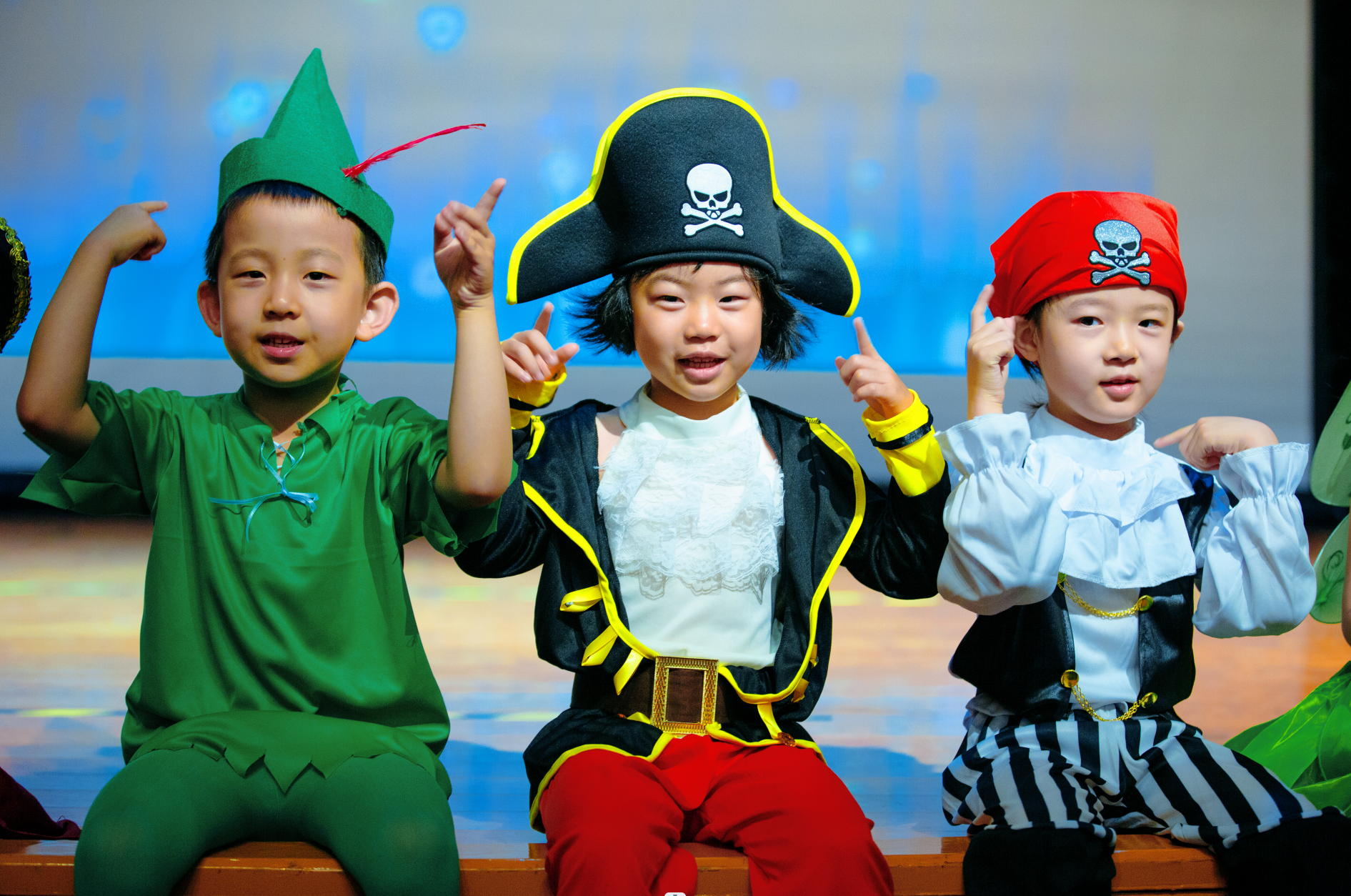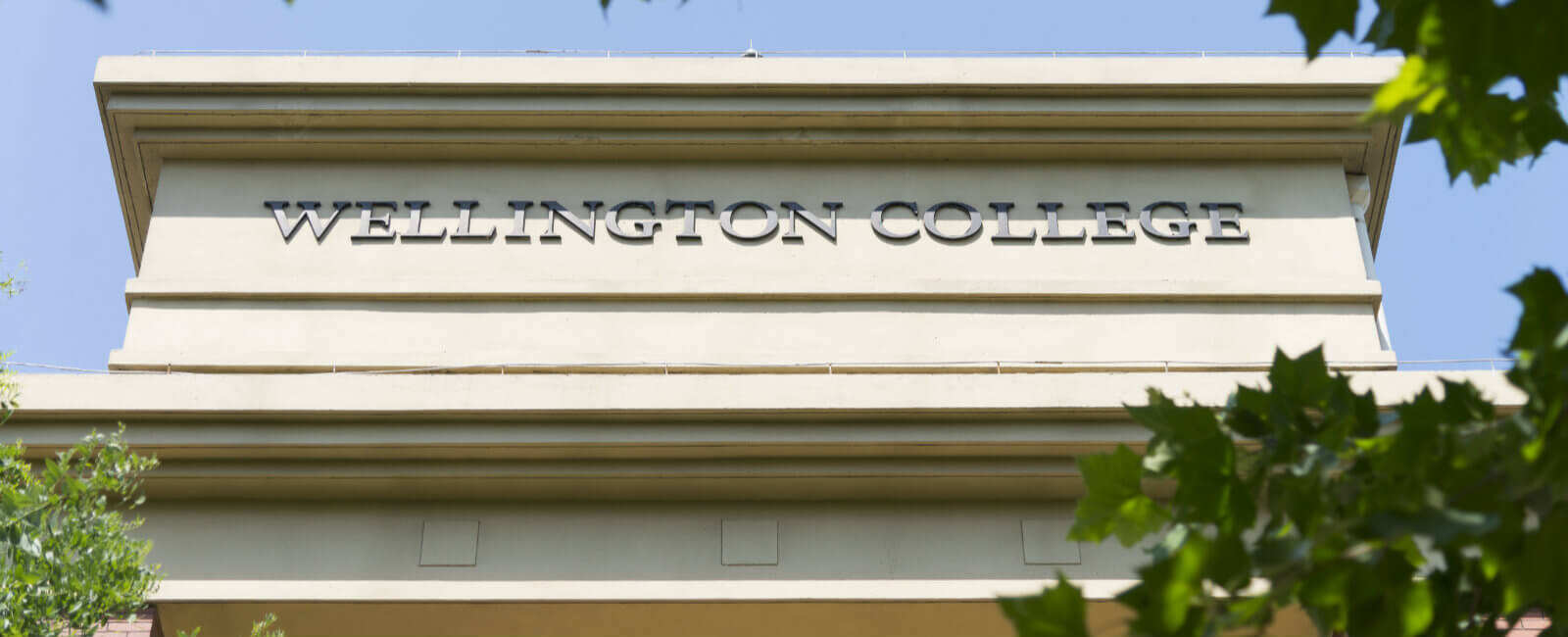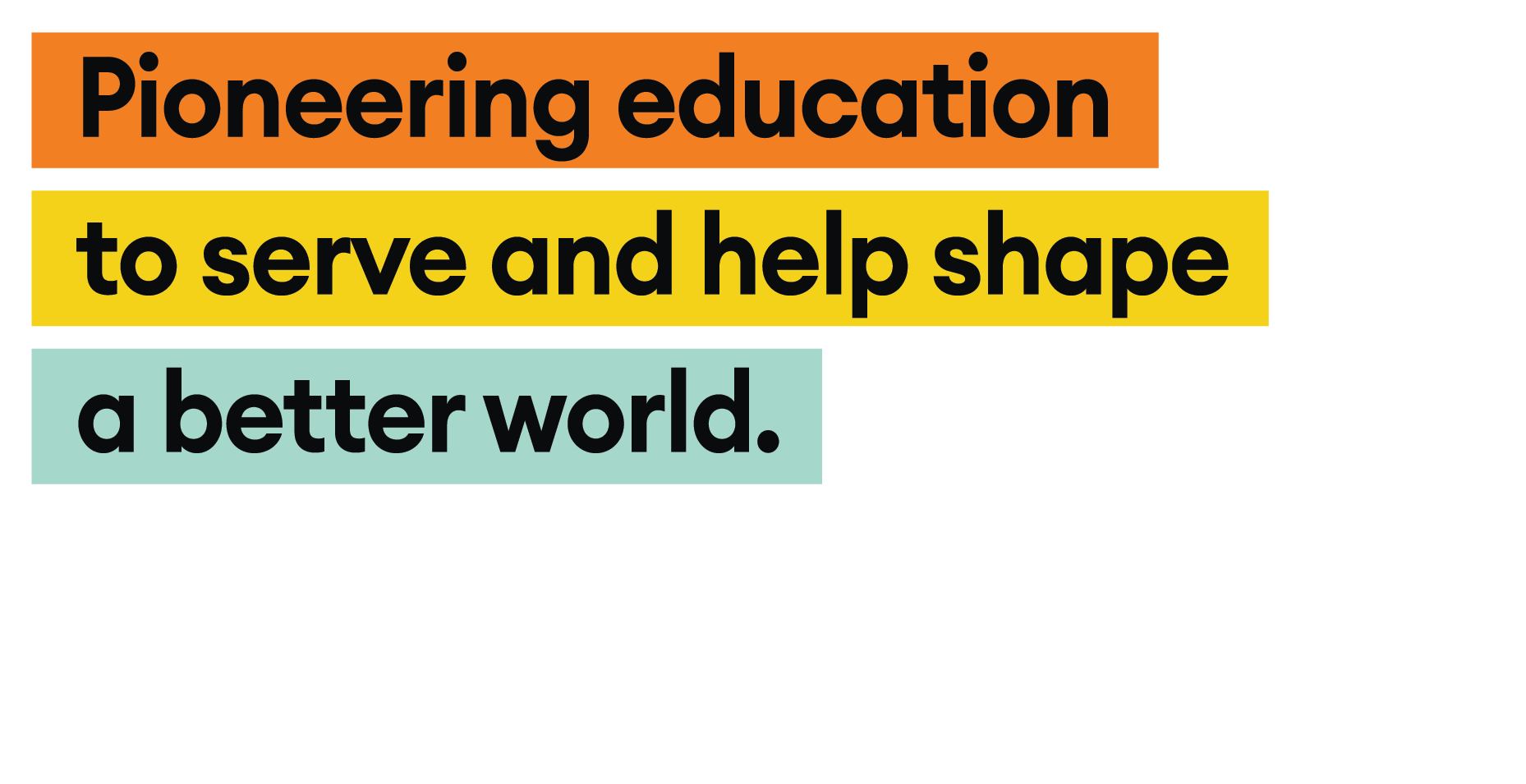Social Development: a child's development puzzle
17 Oct 2019

From the Head of Early Years Dionne Zantua
The era of technology has afforded convenience of life in ways that many of our ancestors could never have imagined. At the tip of your fingers, life’s necessities such as food shopping and transportation can be arranged almost instantly. I myself have enjoyed this convenience and to this day, I have had most of my food delivered right at my doorstep. What I do miss and rightly so, is the interaction that I experience with people. With many jobs now being replaced by artificial intelligence (AI), one of the skills that will still remain, and I believe will be irreplaceable, is emotional intelligence and this can only be cultivated through ongoing interactions with others. The old adage that 'no man is an island' rings true in this week's article as our Nursery Lead Teacher, Monica Mukherjee, discusses the importance of social development in children and how it lays the foundation for all other developments. We hope you will enjoy reading it as much as I did.
From the Nursery Teacher Monica Mukherjee
When we talk about a child's development we invariably focus on their language and communication skills and physical development both gross motor and fine motor. As vitally important as these areas maybe for a child, the most critical piece of a child's development puzzle lies in their personal, social and emotional development. In Wellington College Bilingual Tianjin Nursery, educators recognise that all learning, and more significantly a child's wellbeing is rooted in and stems from it. It is both the starting point and end point of their learning journey in Nursery. As the children interact with other children and adults it provides them with more opportunities to practice and learn speech and language skills. This in turn helps them react and relate to people around them. When the child is able to make friends, it results in exciting and positive experiences which helps the child to reinforce their own individuality and build self-esteem. Friendships often result in conflicts too and we encourage the child to resolve differences with peers building healthy relationships which has a strong impact on their social development as well as problem solving skills.
Some key strategies that assist in social development are:
- Continuous provision for various areas of learning that the children can explore freely and independently, learning through their play. Teachers play with the children in a "peer-like" way to encourage cooperative play—this is helpful when they are in a group environment and have to share toys and cooperate and learn to take turns. Functioning in a group is a vital social skill.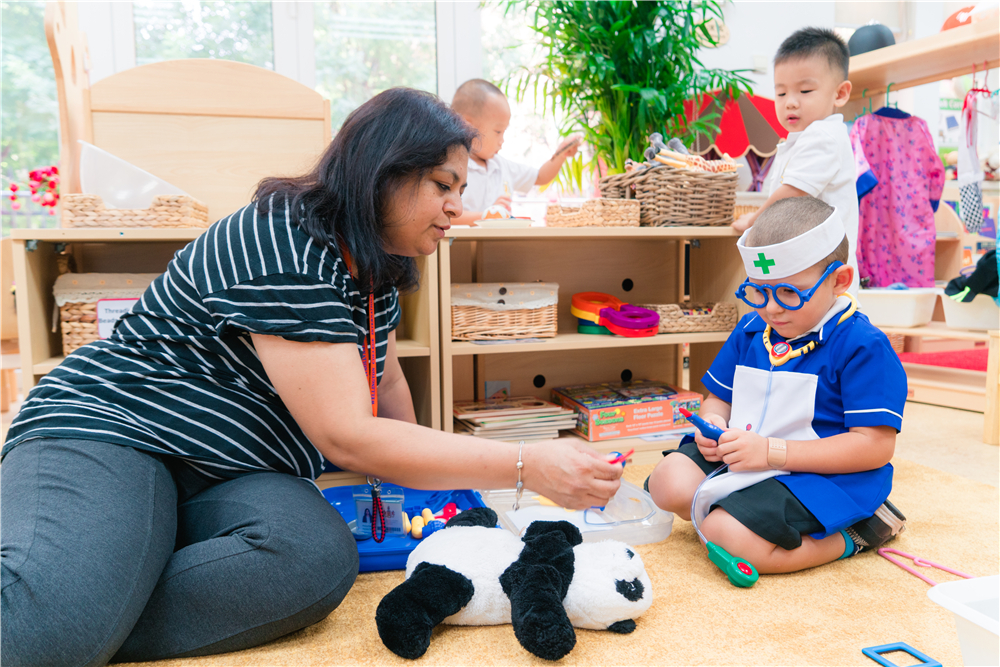
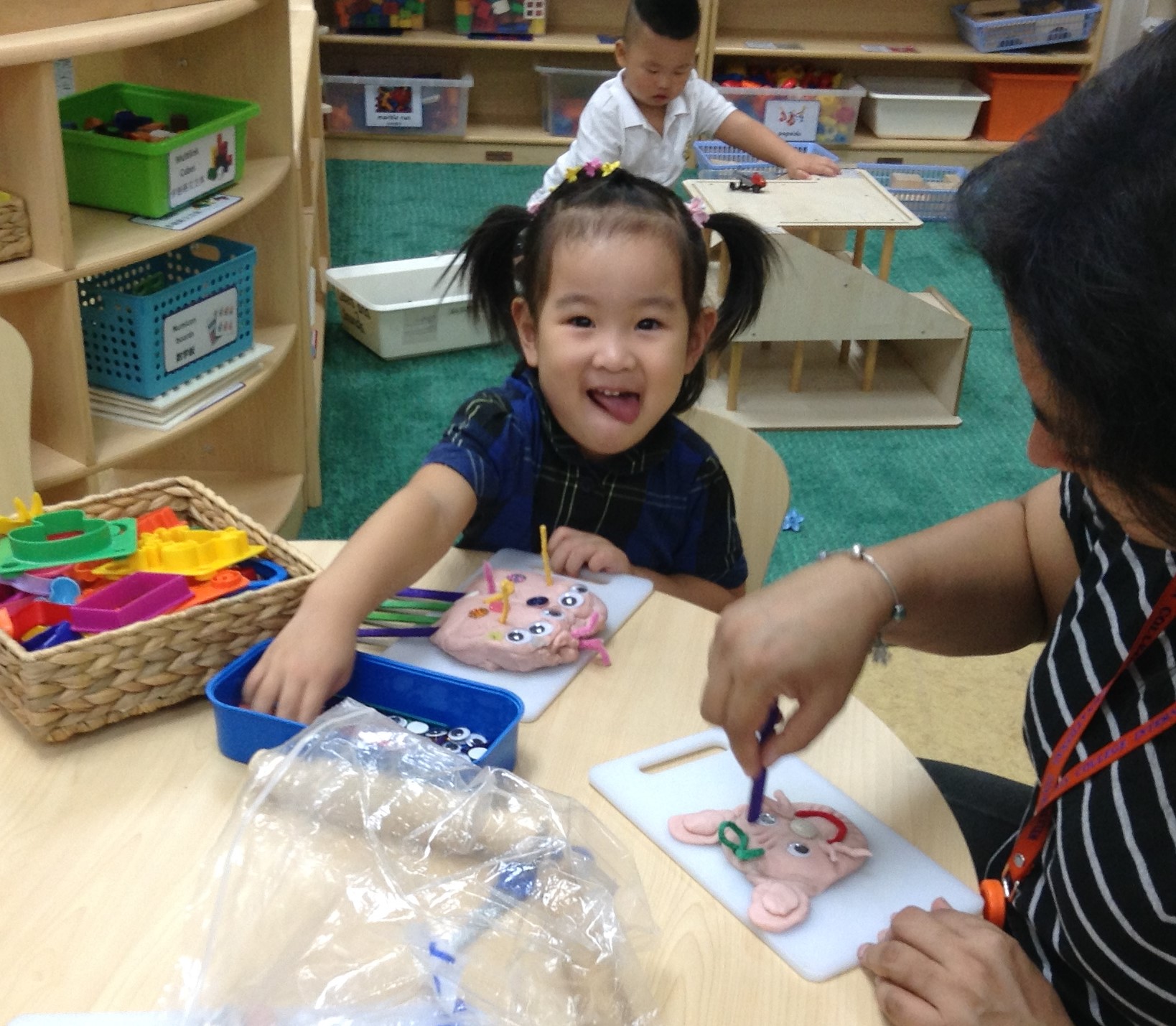 - Topic activities for exploring and understanding friendship and feelings helps the children to develop their interpersonal and intrapersonal skills. They are free to express emotion and affection openly, though not always accurately, but as is developmentally appropriate for them.
- Topic activities for exploring and understanding friendship and feelings helps the children to develop their interpersonal and intrapersonal skills. They are free to express emotion and affection openly, though not always accurately, but as is developmentally appropriate for them.
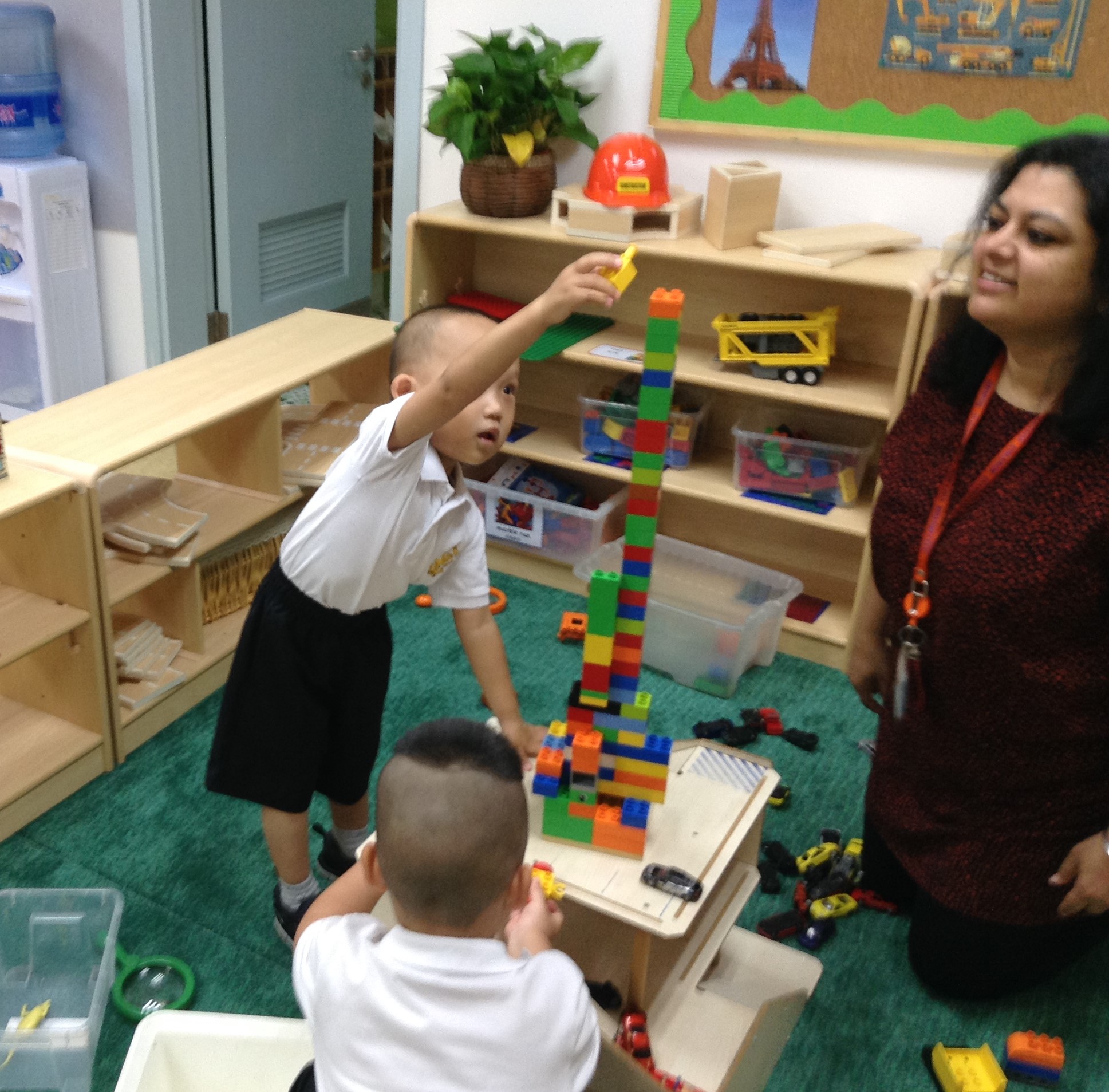 - We let children experience, express and learn to manage negative emotions and learn how to comfort themselves. Children need to identify and express their emotions by talking through what they are feeling.
- We let children experience, express and learn to manage negative emotions and learn how to comfort themselves. Children need to identify and express their emotions by talking through what they are feeling.
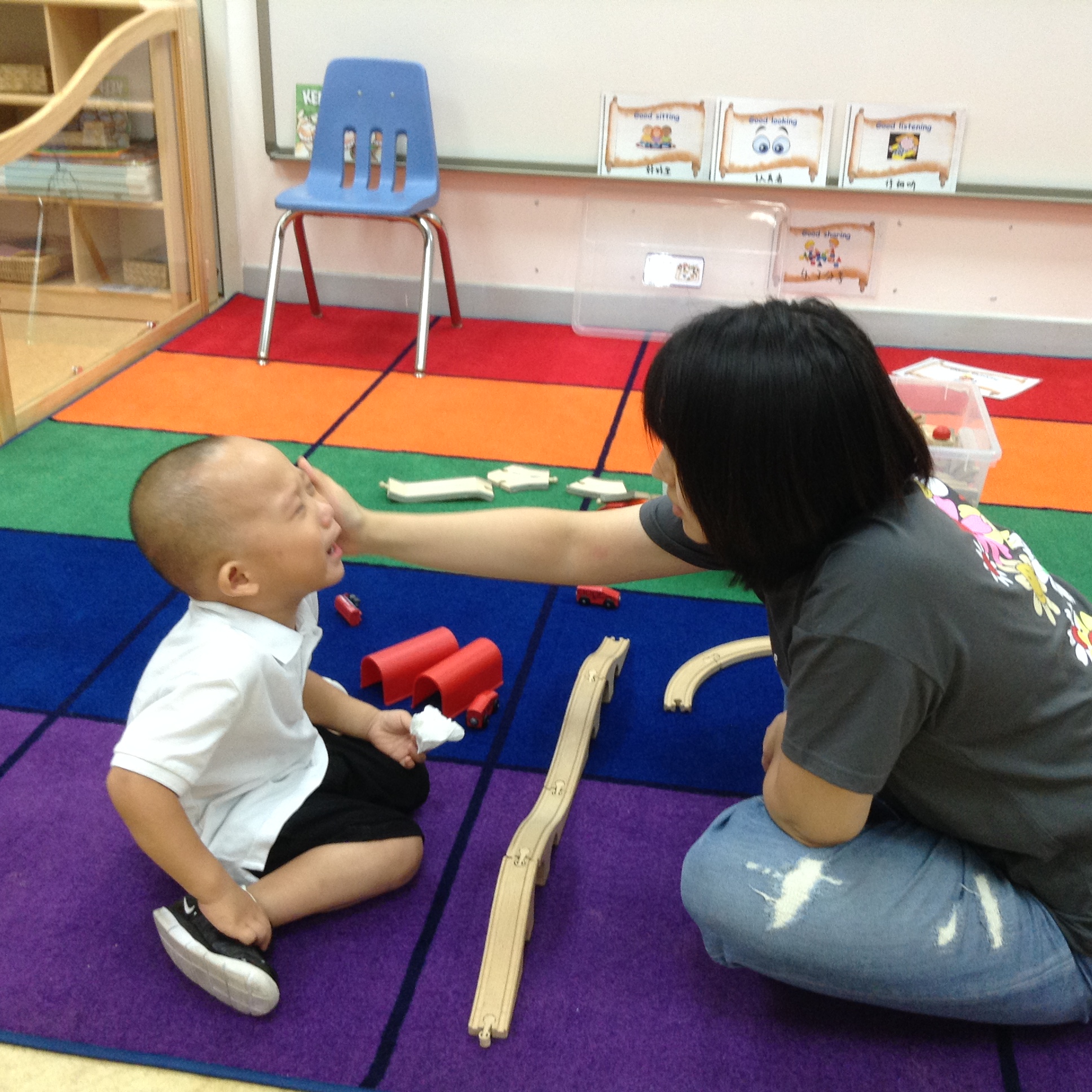
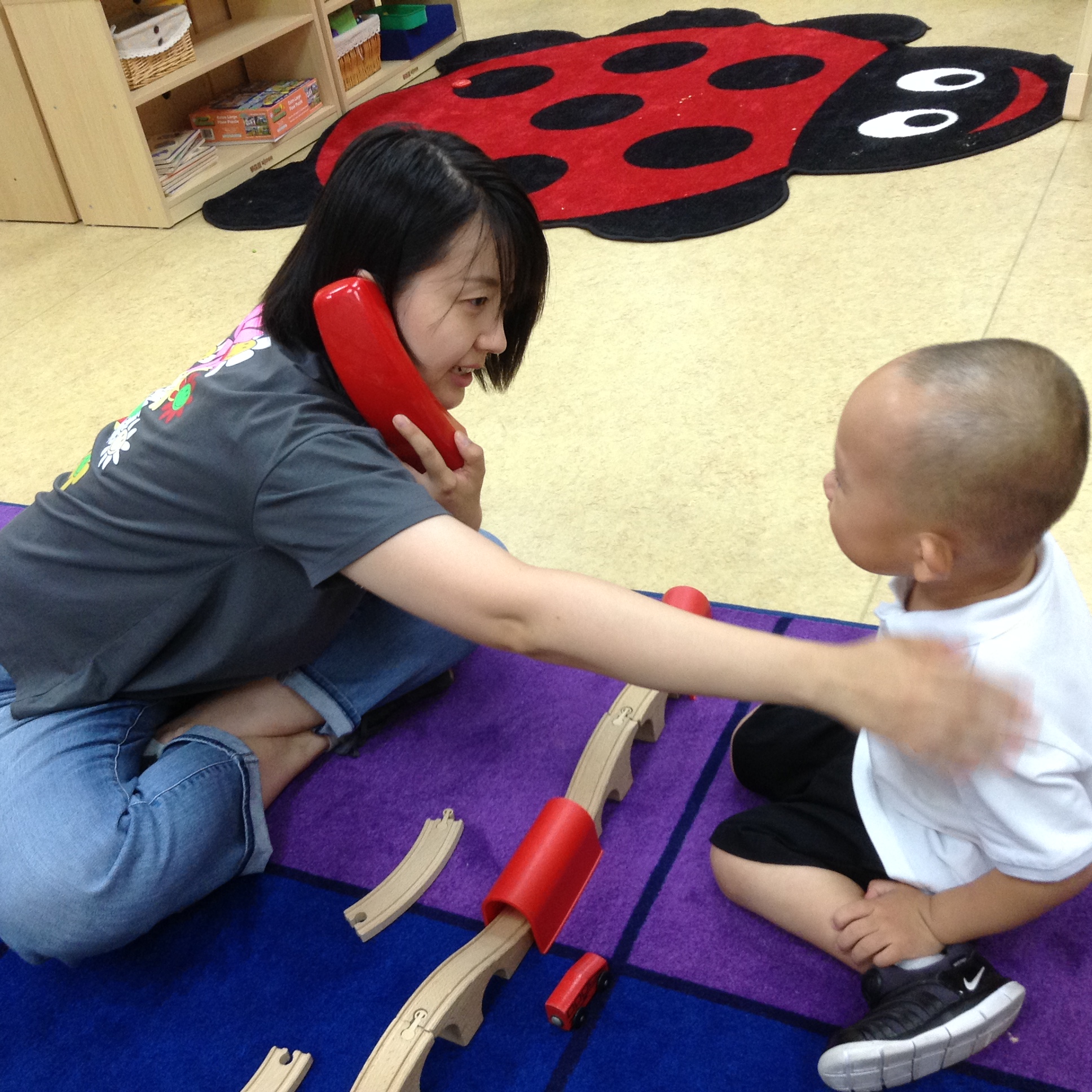
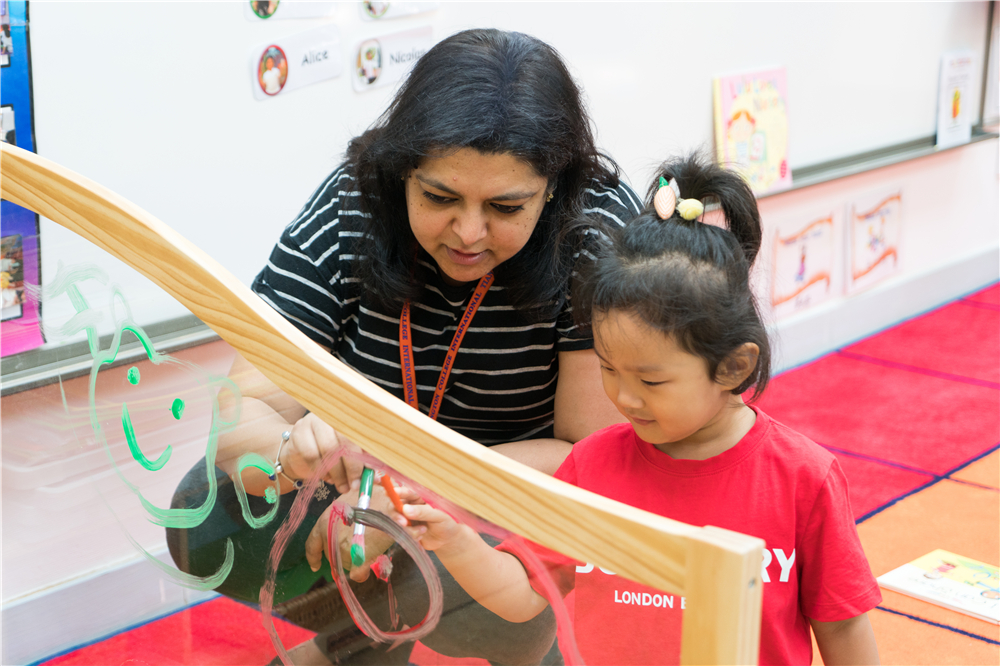 - It is essential that children learn compassion for others from an early age. It prepares them for future relationships. We encourage them to be more aware of others' emotions. They need to look at someone in distress with sympathy and try to help them.
- It is essential that children learn compassion for others from an early age. It prepares them for future relationships. We encourage them to be more aware of others' emotions. They need to look at someone in distress with sympathy and try to help them.

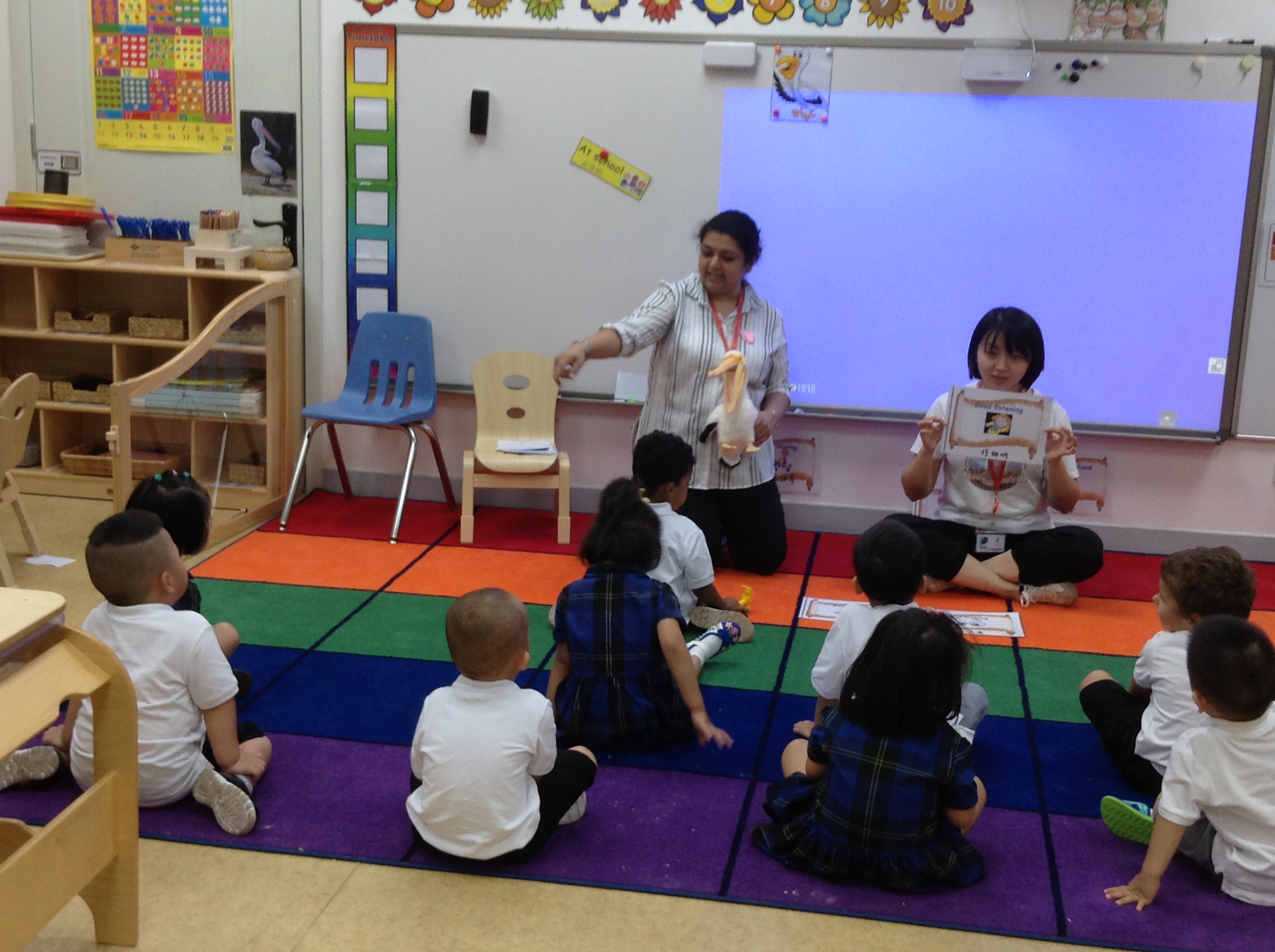
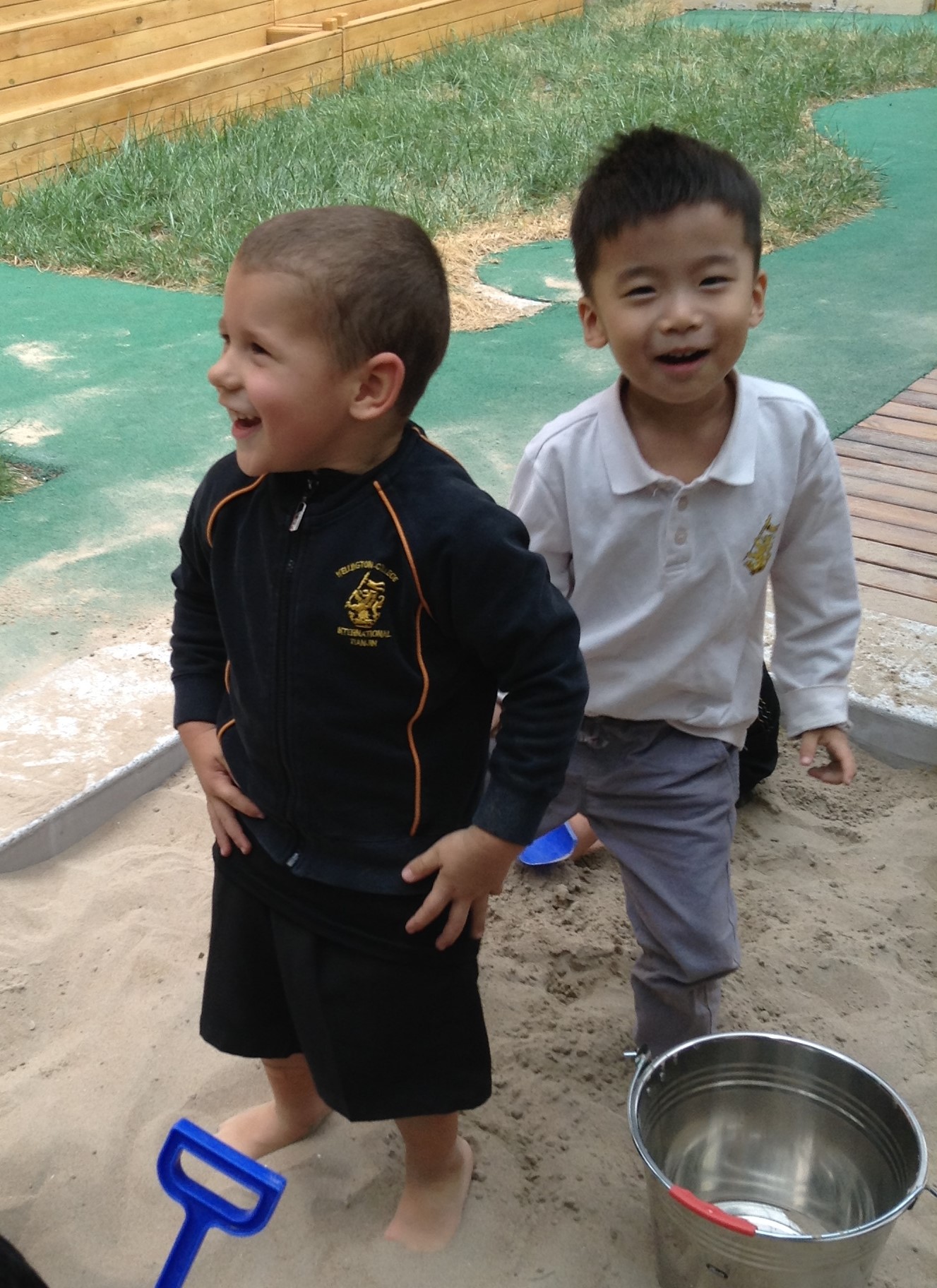
 - Finally, there is a strong focus on developing listening skills through various structured and play activities which is an important ingredient of effective communication. Good listening contributes to communication, socialisation and good behaviour management.
- Finally, there is a strong focus on developing listening skills through various structured and play activities which is an important ingredient of effective communication. Good listening contributes to communication, socialisation and good behaviour management.
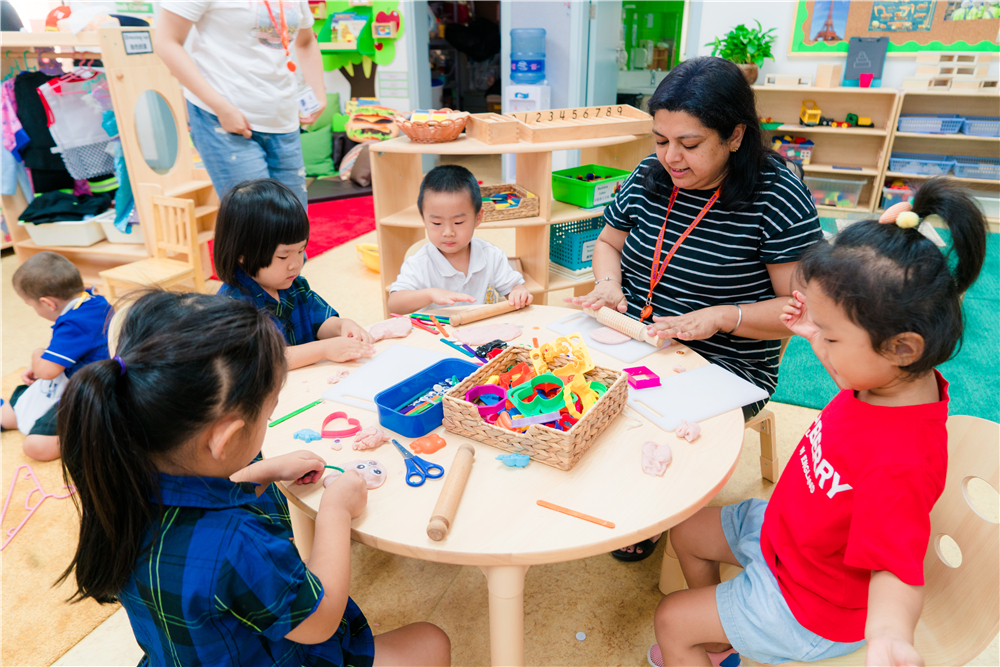 Social development may not be discussed as frequently and as much as the other developmental areas; thus, it is often hard for parents to understand and appreciate the process and to evaluate how their child is developing in this area. At Wellington College Bilingual Tianjin Nursery, we understand that children are unique with distinct personality traits and they have their own ways of learning social skills. Educators strive first to build a relationship and trust with each one of the children in class. After identifying the differing needs of their learners, a differentiated approach is adopted to reach them. Most importantly the children are reassured that the classroom is a safe space where they are loved, valued and respected.
Social development may not be discussed as frequently and as much as the other developmental areas; thus, it is often hard for parents to understand and appreciate the process and to evaluate how their child is developing in this area. At Wellington College Bilingual Tianjin Nursery, we understand that children are unique with distinct personality traits and they have their own ways of learning social skills. Educators strive first to build a relationship and trust with each one of the children in class. After identifying the differing needs of their learners, a differentiated approach is adopted to reach them. Most importantly the children are reassured that the classroom is a safe space where they are loved, valued and respected.
Related Articles

Sparking Curiosity to Provoke Learning - Dinosaurs17 Jun 2019
Discovery abounds in Reception class as they transport back to prehistoric times as their classroom is transformed into a ‘land of dinosaurs’. There is just something magical that happens when childr
Read More

Sports Day in the Nest丨Exercise, good for mind and body30 May 2019
What an exciting, fun morning at Wellington Bilingual Nursery Tianjin, our traditional Sports Day is great fun and keeps the kids fit too!We wanted to introduce the little ones to the spirit of sport
Read More
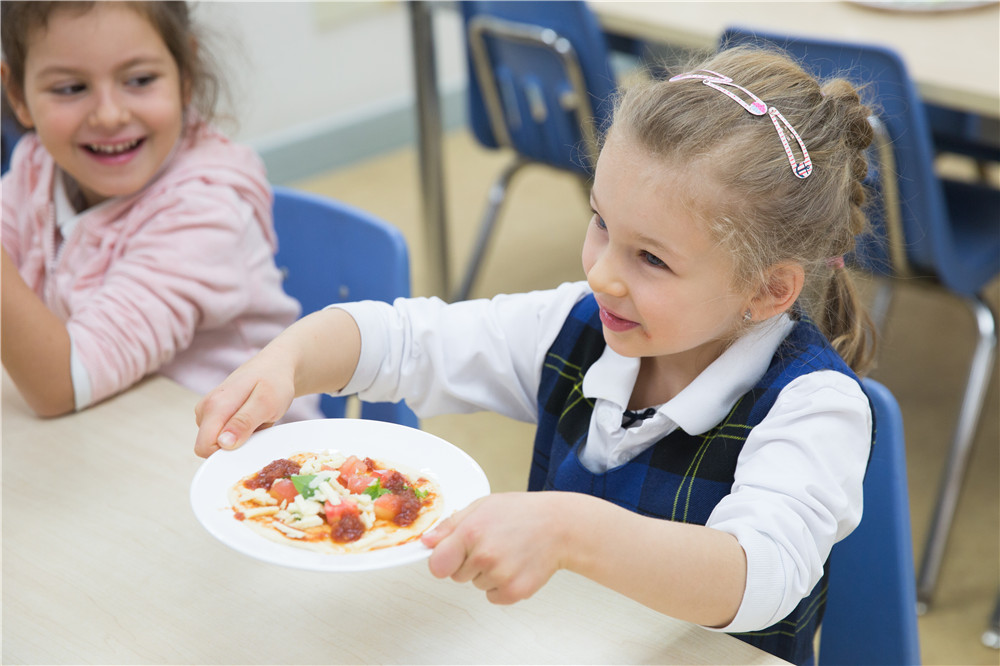
The Importance of Healthy Eating in Schools06 Dec 2019
From the Head of Early Years Dionne Zantua Do you know someone who has Hypertension? Diabetes? Arthritis? The majority of these illnesses are preventable simply by altering the food that we eat over
Read More





 Channel
Channel 
 Linkedin
Linkedin  Weibo
Weibo  Facebook
Facebook  Ins
Ins 

